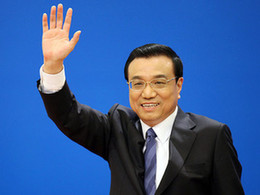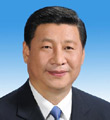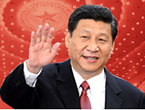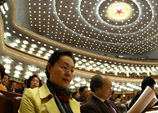NPC FAQs
How are the delegations to the NPC made up and what are their rights and responsibilities?
The various delegations to the National People's Congress are structured according to the units that elected them.
How are NPC Special Committees constituted and what is their role?
In order to strengthen the work of the National People's Congress as the highest organ of state power, the Constitution makes provision for special committees to be set up. Though these committees are not organs of state power in their own right, they pursue their particular remits under the auspices of the highest organ of state power.
How do local people's congresses operate and how do they relate to the NPC?
People's congresses are established in provinces, autonomous regions, municipalities directly under the central government, autonomous prefectures, counties, autonomous counties, cities, municipal districts, townships, ethnic townships and towns. Local people's congresses at various levels are all local organs of state power. Standing committees are established by people's congresses at and above the county level.
Who has the right to interpret the law?
The Standing Committee of the National People's Congress has the right to interpret laws. This right might be exercised when the provisions of a particular law require further clarification as to their specific meaning. Another example would be where new developments arising subsequent to a law being brought in give rise to a need for a clear definition of how the existing law is to be applied in the new circumstances.
How are deputies to the National People's Congress (NPC) elected?
In compliance with the Electoral Law of the National People's Congress and the Local People's Congresses, deputies to the National People's Congress (NPC) are elected by secret ballot where a multi-candidate election approach is to be adopted. Therefore, the number of candidates standing in an election will be 20-50 percent higher than the number of deputies elected. Various political parties and mass organizations can jointly, or independently, propose candidates. More than 10 deputies, in a jointly signed petition, can also nominate prospective candidates.
What qualifies a person to stand for the NPC deputy election?
All citizens of the People's Republic of China who have reached the age of 18 have the right to vote and stand for election. This is regardless of ethnic status, race, sex, occupation, family background, religious belief, education, property status, or length of residence in China. The only exception to this are persons who are deprived of political rights according to the law.
- Voter registration is conducted on the basis of electoral wards. Once registered, a voter will remain qualified to vote for a set period.
- According to Election Law, deputies to the NPC are elected by the people's congress of provinces, autonomous regions and municipalities and by the People's Liberation Army.
In what way are the candidates for the people's congress nominated?
Candidates for the national and local people's congresses are nominated, as prospective deputies, according to the division of electoral wards or units.
Who presides over the election of deputies to the national and local people's congress?
The Standing Committee of the National People's Congress presides over the election of deputies to the NPC.
- Among the elected deputies to the people's congresses, at all levels, there should be an appropriate ratio of elected women deputies. This proportion should be raised gradually.
How do Chinese citizens who reside abroad participate in the election?
Citizens of the People's Republic of China who reside abroad but are present during an election can participate providing they do so from their family home town or last Chinese domicile. This may take place at or below county level.
- The PLA elects its own deputies to the National People's Congress by a system of electoral servicemen congresses. These deputies are elected by the servicemen congresses from general PLA departments and units at the level of major military command as well as the General Office of the Central Military Commission.
+ MoreHighlights of the Sessions
- Fiscal, tax, financial reforms high on agenda
- Premier Li calls for new progress in mainland-Taiwan ties
- China, U.S. should expand common interests: Premier Li
- China to better handle relations between govt, market
- Premier: GDP target flexible, stresses employment
- Deputies eye national anti-terrorism law








